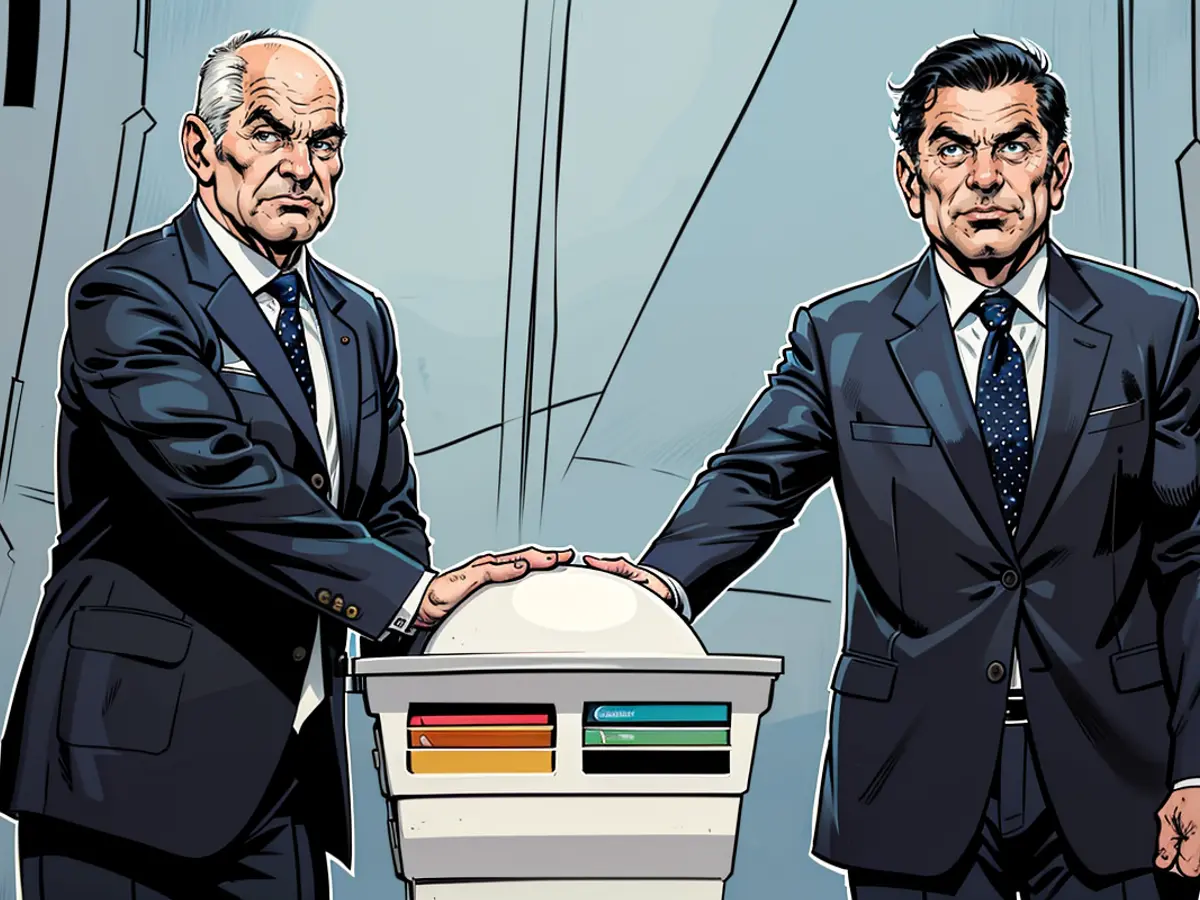Scholz advocates for securing fundamental resources in Uzbekistan for Germany.
Germany is making efforts to decrease its reliance on raw material imports from China and Russia. To accomplish this goal, Chancellor Scholz is visiting Central Asia alongside prominent German business leaders. Additionally, Germany is hoping to receive favorable suggestions regarding the shortage of skilled workers.
Germany and Uzbekistan are looking to strengthen their collaboration in the raw materials sector. At an economic forum in Samarkand, Federal Chancellor Olaf Scholz expressed, "We aim to jointly exploit and develop the opportunities available in the raw materials here." The Uzbek President, Shavkat Mirziyoyev, also highlighted their intent to cooperate, particularly in the extraction of vital raw materials, which would then be processed in Uzbekistan and exported.
Germany is looking to increase its self-dependence due to trade disputes and geopolitical tensions with countries like China and Russia. Mirziyoyev mentioned that they aim to collaborate in sectors like the chemical industry and energy as well. He regarded the economic cooperation between the two nations as a "top priority" and engaged in discussions with the CEOs of German companies accompanying Scholz on his three-day Central Asian tour.
Cooperation proposals mentioned by Mirziyoyev include projects by German firms such as Aurubis, Siemens Energy, and Knauf Building Materials. Additionally, German companies like Papenburg are constructing roads in Uzbekistan, and German railways are active in the country. On Sunday, Germany and Uzbekistan signed a partnership agreement aimed at facilitating migration and training workers for Germany.
Aurubis, for instance, is eager to source copper from Uzbekistan, but the high transportation costs pose a challenge. Discussions are underway regarding potential government support for the transport and the construction of a copper smelter using German technology with AGMK, the Uzbek state-owned company. Linde, the industrial gases company, is also engaged in discussions about a large-scale methanol production facility in Uzbekistan, which, if successful, would be a multi-billion dollar project.
Recently, businesses have raised concerns over the revival of authoritarian tendencies in Uzbekistan and the president's influence in the private sector. Despite these challenges, the potential for economic development with Uzbekistan, the most populous Central Asian country, is promising.
German exports to Uzbekistan dropped to approximately one billion euros in 2023, while imports also decreased to around 76 million euros. The disparity in prosperity is vast; while the economic performance per capita in Germany was about 52,000 dollars in 2023, according to the Federal Statistical Office, Uzbekistan's value was only 2,325 dollars. Scholz then proceeded to Kazakhstan.
Germany and Uzbekistan acknowledge the importance of strengthening their partnership in the raw materials sector, echoing Scholz's statements during his visit to Central Asia. The potential for collaboration in sectors like the chemical industry and energy is substantial, as the Uzbek President, Shavkat Mirziyoyev, considers it a top priority.








